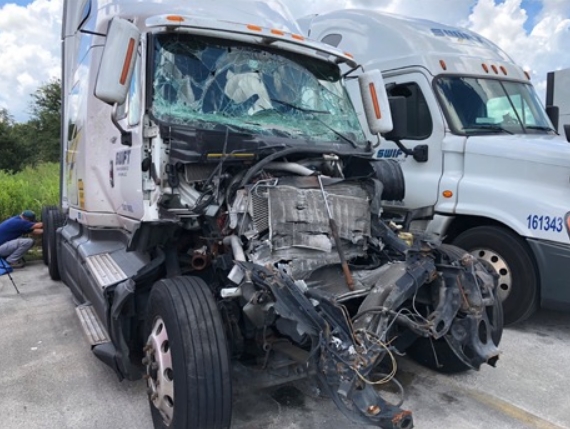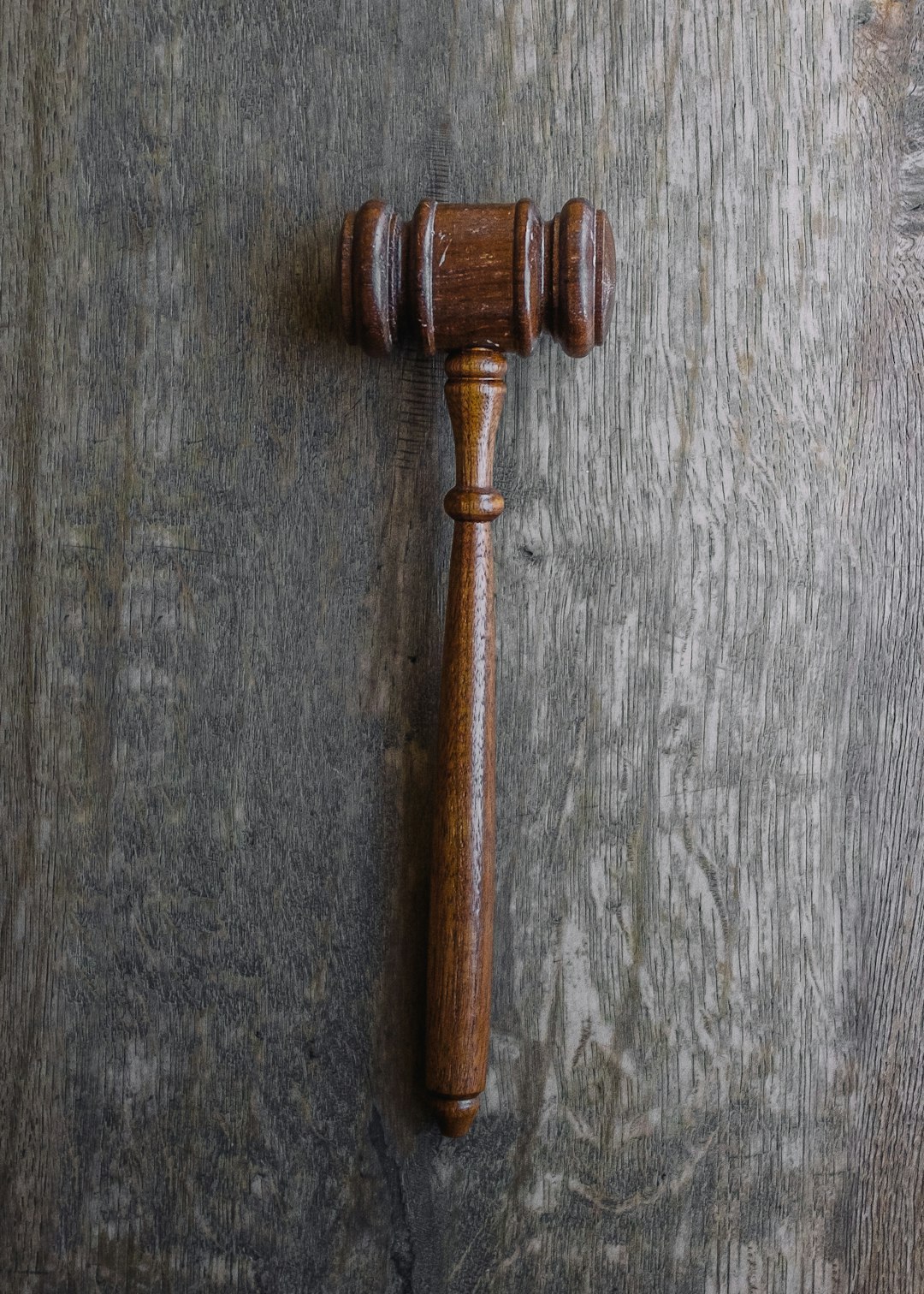

Nerve damage during surgery is a devastating complication that can have life-long consequences for patients. As a medical malpractice lawyer specializing in nerve damage cases, it is crucial to understand the common causes of this injury to provide effective representation and advocacy for those affected.
One prevalent cause of nerve damage during surgery is improper positioning of the patient. Surgeons and their teams must be meticulous in how they position a patient on the operating table to avoid undue pressure on nerves. For instance, prolonged compression or stretching of nerves due to inadequate padding or incorrect limb placement can result in significant damage. Ensuring proper positioning requires careful planning and constant vigilance throughout the procedure.
Another frequent cause is surgical error, including inadvertent cuts or lacerations. Nerves are often located perilously close to surgical sites, making precision paramount. A slight deviation from the intended path can sever or injure a nerve, leading to loss of sensation, motor function, or chronic pain for the patient. This type of error underscores the importance of skill and attentiveness on the part of the surgeon.
In some cases, excessive use of retraction devices can lead to nerve injury. medical malpractice lawyer Washington . Retractors are used to hold back tissues so surgeons can access their target areas more easily. However, if these devices are applied with too much force or left in place for an extended period, they can compress nerves and impair their function. The delicate balance between achieving clear visibility and minimizing harm requires expert judgment.
Anesthesia-related complications also contribute significantly to nerve damage during surgery. Improper administration of epidural or spinal anesthesia can directly affect nerves, causing temporary or permanent impairment. Anesthesiologists must ensure precise needle placement and dosage calculation to mitigate these risks effectively.
Lastly, postoperative care plays a vital role in preventing nerve damage after surgery. Inadequate monitoring of patients' recovery can allow conditions like compartment syndrome-a painful condition caused by increased pressure within muscles-to go unnoticed until irreversible nerve damage occurs.
Understanding these common causes allows medical malpractice lawyers to meticulously evaluate each case's merits by examining operative reports, consulting medical experts, and identifying potential negligence points. By doing so, they stand better prepared to advocate fiercely for clients who have suffered unnecessary harm due to preventable surgical errors.
For victims suffering from nerve damage due to surgical malpractice, seeking legal redress serves not only as a means of obtaining compensation but also as a step toward accountability within the healthcare system-ensuring higher standards are upheld in future surgical practices.
Identifying Signs and Symptoms of Nerve Damage Post-Surgery
Undergoing surgery can be a daunting experience, filled with hope for recovery yet fraught with potential complications. One significant complication that can arise is nerve damage, an issue that can profoundly affect a patient's quality of life. For individuals who suspect they've suffered nerve damage post-surgery, recognizing the signs and symptoms becomes imperative. This awareness not only aids in seeking timely medical intervention but also plays a crucial role in legal pursuits should medical malpractice be suspected.
Nerve damage post-surgery manifests through a variety of symptoms, often depending on the location and extent of the injury. Commonly, patients may experience persistent numbness or tingling in certain parts of their body. While temporary numbness immediately following surgery might be expected as part of the healing process, prolonged or worsening sensations should raise alarm bells.
Pain is another crucial indicator. Unlike typical postoperative pain that subsides over time, nerve-related pain tends to be sharp, burning, or shooting in nature. This type of discomfort often doesn't respond well to standard pain medications and may seem disproportionate to the surgical site's healing progress.
Muscle weakness and paralysis are also telltale signs. If a patient finds it difficult to move specific muscles or limbs following surgery-a condition not explained by prescribed postoperative immobility-this could signal nerve trauma. Such motor deficits can severely impact daily activities and overall mobility.
Additionally, patients might notice changes in their sensory perception beyond mere numbness. Heightened sensitivity to touch (hyperesthesia) or even complete insensitivity (anesthesia) on some skin patches suggest possible nerve involvement. These alterations are not just inconvenient but can pose risks if one cannot feel injuries or other harmful stimuli adequately.
If these symptoms persist or worsen over time, it is essential for patients to consult their healthcare provider promptly for a thorough evaluation. Diagnostic tests such as electromyography (EMG) or nerve conduction studies (NCS) might be employed to assess the extent and exact location of the nerve damage.
However, when such symptoms arise due to negligence during surgery-such as improper surgical techniques or failure to appropriately monitor the patient during recovery-the situation transcends mere medical complications into the realm of medical malpractice.
For those grappling with this unfortunate scenario, consulting with a skilled medical malpractice lawyer becomes critical. A seasoned attorney specializing in nerve damage cases will meticulously review medical records, consult with expert witnesses, and build a case demonstrating how deviations from standard care led directly to nerve injury.
Medical malpractice lawyers offer more than just legal representation; they provide support and advocacy for patients navigating complex emotions and physical challenges wrought by surgical errors. Their goal is not only to secure financial compensation for medical bills, lost wages, and suffering but also to hold healthcare providers accountable-thereby promoting higher standards within the medical community.
In conclusion, identifying signs and symptoms of nerve damage post-surgery is vital for prompt treatment and potential legal recourse. Persistent numbness, unusual pain patterns, muscle weakness, and altered sensory perceptions warrant immediate attention from both medical professionals and legal experts if negligence is suspected. Awareness coupled with professional guidance can empower patients towards recovery and justice after such debilitating experiences.
Finding the best medical malpractice lawyer near you can be a daunting task, but it’s an essential one if you seek justice and fair compensation for any harm you've suffered.. The process involves several crucial steps: conducting thorough research, consulting with multiple professionals, and ultimately trusting your instincts. First and foremost, start with comprehensive research.

Posted by on 2024-09-17
When you're confronted with the intricacies of a medical malpractice case, securing qualified legal representation is essential to navigating the complex legal landscape effectively.. Medical malpractice is an area of law that demands specialized knowledge and experience due to its nuanced nature.

Posted by on 2024-09-17
When considering the cost of hiring a medical malpractice lawyer, it's crucial to understand the different payment models that attorneys may use.. Each model has its own set of advantages and disadvantages, and choosing the right one can significantly impact both your finances and the outcome of your case. One common payment model is the Contingency Fee arrangement.

Posted by on 2024-09-17
When faced with the unsettling suspicion of medical malpractice, it’s natural to be overwhelmed by a swirl of emotions and questions.. One of the most pressing concerns is what steps to take next: should you consider settlement options or prepare to go to trial?

Posted by on 2024-09-17
Navigating the complex landscape of medical malpractice can be daunting, especially if you're considering going it alone without the aid of a lawyer.. The good news is that there are numerous resources available to help you represent yourself effectively in these cases.

Posted by on 2024-09-17
In the realm of healthcare, trust between patients and their medical providers is paramount. This trust is especially critical when it comes to surgical procedures, where individuals place their well-being, and often their lives, in the hands of skilled professionals. However, this trust can be shattered when something goes wrong during surgery, leading to complications such as nerve damage. In such instances, understanding the legal responsibilities of surgeons and healthcare providers becomes crucial.
Surgeons and healthcare providers are bound by a set of legal obligations designed to protect patients. These duties encompass everything from obtaining informed consent before the procedure to providing an appropriate standard of care during and after surgery. When these responsibilities are neglected or inadequately fulfilled, it can result in serious consequences for the patient, including nerve damage that may lead to pain, loss of function, or permanent disability.
A significant legal responsibility is obtaining informed consent. Surgeons must ensure that patients are fully aware of the potential risks and benefits associated with a procedure. This includes discussing possible outcomes like nerve damage. Failure to obtain proper informed consent can be grounds for a malpractice claim if complications arise post-surgery.
During surgery, healthcare providers must adhere to established standards of care. This means performing the procedure with the same level of competence and skill as would be expected from any reasonable surgeon under similar circumstances. Any deviation from these standards that results in harm could be considered negligence.
Post-operative care also falls within the scope of a surgeon's legal duties. Proper follow-up is essential to monitor recovery and address any emerging issues promptly. Neglecting post-operative care can exacerbate complications such as nerve damage and contribute further to patient suffering.
When nerve damage occurs due to perceived negligence or failure in these areas, affected patients often seek the counsel of medical malpractice lawyers specializing in such cases. A medical malpractice lawyer plays a pivotal role in navigating the complex landscape of healthcare law. They assist patients by investigating claims thoroughly-reviewing medical records, consulting with expert witnesses, and building a case that demonstrates how deviations from standard practices led directly to injury.
For instance, if a patient experiences nerve damage following what should have been a routine surgical procedure, a malpractice lawyer will examine whether all pre-surgical protocols were followed correctly; whether there was any deviation during surgery; or if post-surgical care was adequate. If they find evidence indicating negligence at any stage-which might range from improper surgical technique to inadequate monitoring-they will advocate for their client's right to compensation.
Ultimately, lawsuits involving nerve damage after surgery underscore the importance of accountability within healthcare practices. Surgeons and healthcare providers are entrusted with immense responsibility because errors can lead not only to physical suffering but also emotional distress and financial burdens for affected individuals.
Medical malpractice lawyers serve as crucial allies in holding negligent parties accountable while ensuring that victims receive justice for their pain and suffering. By addressing breaches in legal responsibilities through litigation or settlement negotiations, they help maintain high standards within the medical community-standards essential for preserving patient trust in our healthcare system.

If you suspect medical malpractice, particularly in nerve damage cases after surgery, it is crucial to take immediate and thoughtful steps to protect your health and legal rights. Medical malpractice can be a complex and emotionally taxing issue, but understanding the necessary actions can make the process more manageable.
First and foremost, seek a second medical opinion. If you believe that your nerve damage resulted from surgical negligence, consulting another healthcare professional can provide you with an unbiased assessment of your condition. An independent evaluation will help confirm whether the injury could have been avoided or if it falls within the normal risks associated with the procedure.
Document everything meticulously. Keep detailed records of all medical appointments, treatments, prescriptions, and communications with healthcare providers. Photographs of visible injuries or symptoms can also be invaluable. This documentation will serve as critical evidence should you decide to pursue a legal claim.
Next, request copies of your medical records from the hospital or clinic where your surgery was performed. These records will include vital information such as surgical notes, pre-operative instructions, and post-operative care details. Accessing these documents can shed light on what transpired during your surgery and identify potential lapses in standard care.
Once you have gathered sufficient information about your situation, consult with a specialized medical malpractice lawyer who has experience handling nerve damage cases. Medical malpractice law is highly specialized; therefore, finding an attorney with expertise in this area will significantly enhance your chances of success. A knowledgeable lawyer can evaluate the merits of your case and guide you through the legal process.
During your initial consultation with an attorney, be prepared to discuss every aspect of your case openly. Your lawyer will need to understand the full scope of your injury and its impact on your life-physically, emotionally, and financially-to build a strong case on your behalf. They may also collaborate with medical experts who can provide testimony supporting claims that negligence occurred during your surgery.
It's essential to act promptly because there are statutes of limitations governing how long you have to file a medical malpractice lawsuit. These time frames vary by state but typically range from one to three years from the date of injury or discovery of harm caused by negligent care.
Additionally, avoid discussing your suspicions or specifics about potential litigation on social media platforms. Anything shared publicly could be used against you in court or potentially complicate settlement negotiations.
Finally, prioritize self-care throughout this challenging period. Dealing with nerve damage after surgery is already stressful without adding legal concerns into the mix; therefore seeking support from family members friends support groups therapists etc.,can help maintain emotional well-being while navigating through both recovery processes simultaneously
Taking these steps methodically increases chances securing justice compensation necessary cover ongoing treatment costs lost wages pain suffering endured due alleged malpractice By being proactive informed steady approach better positioned achieve positive outcome deserved
Lawyer for medical malpractice involving negligent hospital care
Gathering Evidence for a Nerve Damage Case: A Medical Malpractice Lawyer's Perspective
Navigating the aftermath of a surgical procedure can be daunting, especially when complications arise. For patients who suffer nerve damage as a result of surgery, the physical and emotional toll can be overwhelming. In these instances, enlisting the expertise of a medical malpractice lawyer becomes crucial to seek justice and compensation. One of the most critical steps in building a strong case is gathering compelling evidence. This process is intricate and demands meticulous attention to detail.
Understanding the nature of nerve damage is essential for both the patient and their legal representation. Nerves are delicate structures that control sensations and movements throughout the body. When damaged during surgery, it can lead to chronic pain, loss of function, or even permanent disability. To prove that such an injury resulted from medical negligence, substantial evidence must be collected.
The first step in this journey is obtaining comprehensive medical records. These documents provide a detailed account of the patient's health history, surgical procedures undertaken, and post-operative care received. A thorough review by a seasoned attorney can uncover inconsistencies or deviations from standard medical practices that may indicate negligence.
Equally important is securing expert testimony from qualified medical professionals. An independent neurologist or surgeon can offer an objective analysis of the case by examining medical records and evaluating whether the nerve damage could have been avoided with appropriate care. Their insights are invaluable in establishing the link between the surgical procedure and resultant nerve injury.
Photographic evidence also plays a significant role in substantiating claims. High-resolution images depicting visible signs of nerve damage or related complications provide tangible proof that strengthens the case against negligent parties. Additionally, diagnostic imaging reports such as MRIs or CT scans offer visual representations that corroborate claims made by expert witnesses.
Patient testimonials are another vital piece of evidence in nerve damage cases. Personal accounts detailing symptoms experienced before and after surgery help illustrate how significantly their quality of life has been affected due to alleged malpractice. These narratives humanize the case, allowing jurors to empathize with the victim's plight.
In some instances, gathering circumstantial evidence may involve reconstructing events leading up to and following the surgery through witness statements from hospital staff present at key moments during treatment delivery-nurses' logs documenting preoperative preparations or postoperative observations might reveal lapses contributing towards causation factors linked directly back onto responsible entities involved therein too!
Lastly-and perhaps most importantly-it's essential not only secure but preserve all aforementioned types relevant materials meticulously organized fashion ensure seamless presentation courtroom setting where every detail counts when persuading judge/jury favorably adjudicating upon merits underlying claims brought forth behalf plaintiff(s).
In conclusion: Gathering robust evidentiary support forms backbone successful litigation efforts pursued within realm handling delicate matters pertaining specifically toward addressing grievances arising consequentially out incidents involving potential iatrogenic injuries sustained context undergoing various invasive interventions performed clinical environments today!
When you undergo surgery, you place immense trust in the medical professionals who are responsible for your care. However, there are unfortunate instances where this trust is broken due to negligence or errors during the surgical procedure. Nerve damage is one of the severe consequences that can arise from such lapses, leading to long-term pain, disability, and emotional distress. In these challenging circumstances, a medical malpractice lawyer becomes an indispensable ally in seeking justice and compensation for your suffering.
The primary role of a medical malpractice lawyer in nerve damage cases after surgery is to navigate the complex legal landscape on your behalf. Medical malpractice law is intricate and requires a deep understanding of both legal principles and medical terminologies. An experienced attorney will begin by conducting a thorough evaluation of your case to determine whether it meets the criteria for malpractice namely, that the healthcare provider deviated from accepted standards of care, directly causing your injury.
One of the critical tasks undertaken by a medical malpractice lawyer is gathering evidence to substantiate your claim. This involves obtaining detailed medical records, surgical notes, and diagnostic reports that can shine a light on what transpired during your surgery. The lawyer will also consult with medical experts who can provide professional opinions on whether the nerve damage resulted from negligence or was an unavoidable risk associated with the procedure.
Building a compelling case requires meticulous attention to detail. Your attorney will construct a timeline of events leading up to and following the surgery, identify deviations from standard protocols, and illustrate how these deviations contributed to your nerve damage. In doing so, they help establish causation a crucial component in any successful malpractice claim.
Another essential aspect of their role is negotiating with insurance companies. Insurers often employ tactics aimed at minimizing payouts or denying claims altogether. A seasoned medical malpractice lawyer understands these strategies and can effectively counter them to ensure you receive fair compensation for your injuries. This remuneration may cover various damages including medical expenses, lost wages due to inability to work, rehabilitation costs, and compensation for pain and suffering.
If negotiations do not yield an acceptable settlement, your lawyer will be prepared to take your case to court. Litigation in medical malpractice cases demands rigorous preparation and skillful advocacy. Your attorney will present compelling arguments supported by concrete evidence and expert testimonies to persuade the jury or judge of the validity of your claim.
Beyond their legal expertise, medical malpractice lawyers offer invaluable emotional support during what can be an incredibly stressful time. Dealing with nerve damage after surgery can be overwhelming; having someone who understands both the legal intricacies and human impact provides reassurance that you are not facing this battle alone.
In conclusion, a medical malpractice lawyer plays a pivotal role in navigating nerve damage cases arising from surgical errors or negligence. Their expertise ensures that all aspects of your claim are meticulously handled from gathering evidence and consulting experts to negotiating settlements or representing you in court if necessary. By securing just compensation for your injuries, they help alleviate some of the burdens imposed by surgical nerve damage while holding negligent parties accountable for their actions.
When considering the term "Potential Compensation for Victims of Surgical Nerve Damage," it's important to first understand the gravity and implications of nerve damage. Nerve damage, particularly when caused by surgical procedures, can be life-altering. It may lead to chronic pain, loss of sensation, or even paralysis. These outcomes not only affect a person's physical well-being but also have profound emotional and financial ramifications.
In the realm of medical malpractice law, individuals who suffer from surgical nerve damage may be eligible for compensation if it can be proven that the harm was due to negligence. Medical malpractice occurs when a healthcare provider deviates from the accepted standard of care, resulting in injury to the patient. Proving this requires meticulous documentation and expert testimony to demonstrate that the surgeon or medical team failed to perform their duties with reasonable skill and care.
Compensation for victims can cover various aspects. First and foremost are medical expenses. This includes costs associated with immediate treatments following the surgery as well as long-term care needs such as physical therapy, medications, and potential future surgeries aimed at mitigating the damage.
Lost wages are another critical component of compensation. Nerve damage can hinder a person's ability to work temporarily or permanently, depending on the severity. Calculating lost wages involves assessing past income and projecting future earnings that would have been possible had the injury not occurred.
Pain and suffering is another category where victims might seek compensation. Unlike medical expenses or lost wages which are somewhat tangible and easier to quantify, pain and suffering encompass both physical discomfort and emotional distress caused by nerve damage. The subjective nature of this category often makes it a contentious point in legal proceedings.
Furthermore, victims may also receive compensation for loss of consortium if their injury has adversely affected their relationship with a spouse or family members. This form of compensation acknowledges that personal relationships suffer alongside physical injuries.
It is crucial for victims seeking compensation due to surgical nerve damage to consult an experienced medical malpractice lawyer who specializes in these types of cases. Such lawyers bring invaluable expertise in navigating complex medical records, understanding intricate legal frameworks, and employing strategies tailored specifically for presenting compelling arguments in court.
The path to securing fair compensation is often fraught with challenges including opposition from insurance companies aiming to minimize payouts or outright denying claims. Having a skilled lawyer ensures that victims' rights are upheld throughout negotiations or litigation processes.
In conclusion, potential compensation for victims of surgical nerve damage encompasses far more than mere financial reimbursement; it represents an acknowledgment of suffering endured and serves as a means towards rebuilding lives disrupted by medical negligence. With professional legal guidance, those impacted by such grievous injuries stand a better chance at obtaining just recompense enabling them one step closer towards regaining control over their futures.